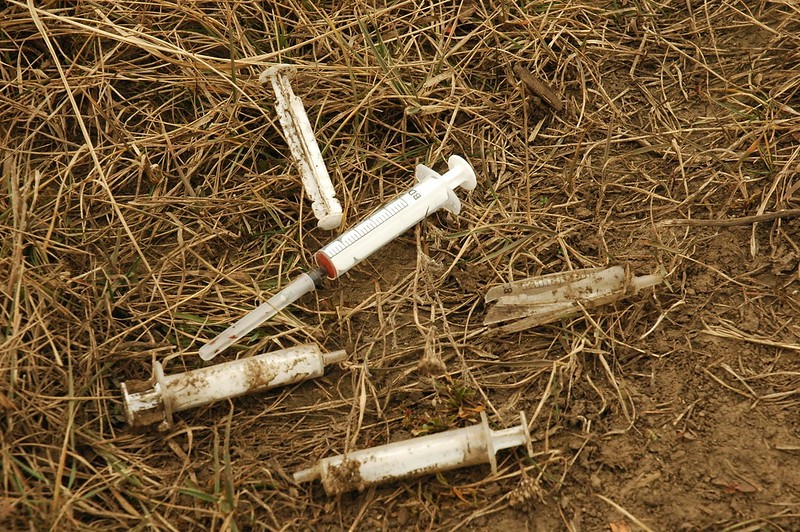SHARES

“Hepatitis infection is still a great burden on healthcare because of the high cost of treatment for liver failure and transplant. Is there any way to prevent the disease?”
Viral hepatitis is inflammation of the liver due to virus infection. There are 5 types of virus: A, B, C, D, and E. The most common types are hepatitis A, B, and C. Although all these viruses can cause liver diseases, they are different in epidemiology, prevention and treatment.
This is still a global concern affecting millions of people and causing a great burden to many countries. First and foremost, many people have no symptoms, and continually transmit the disease to others. Unfortunately, infection with the virus can lead to life threatening complications. So, it’s important to educate ourselves on how to prevent the disease.
Hepatitis A
This commonly transmits through faecal-oral route, meaning that you can get the infection if you consume food or drink that has the virus in it. The infection can also spread through close physical contact and unprotected sex. Usually, there are minimal or no symptoms. Symptoms that may appear include jaundice, tummy pain, nausea. Fortunately, most people recover fully from the infection and become immune to it.
Prevention
The best way to prevent hepatitis A is to get a vaccine. You should consider taking the shot if you are planning a trip to places with the disease outbreak. The vaccine usually take 2 to 4 weeks to be effective, so if you didn’t get your vaccine a month before your travel, you will need to get a shot of immune globulin against the virus before your trip.
Also, be careful with what you eat or drink when you are travelling to places where the virus is common. You should:
- Practise proper hand washing before eating and after using the bathroom.
- Ensure proper storage of food and make sure to cook food thoroughly.
- Boil your tap water.
- Avoid salads or fresh fruits that are washed with untreated water.
- Don’t sip drinks with ice cubes.
Hepatitis B
This virus infection is usually acute, but it can also become chronic and cause complication like liver cancer and cirrhosis. Hepatitis B spreads through blood, semen and other body fluids. Meaning to say, it can occur through unsafe sexual intercourse, blood transfusion, medical procedures, sharing of needles and syringes among drug users. In addition, pregnant mothers with the virus are at risk of transmitting it to the newborn baby during childbirth due to open wounds and bleeding. Likewise, healthcare workers are also at risk of getting the infection due to needle stick injuries.
Prevention
You can prevent hepatitis B by getting vaccinated. The first dose is usually given to baby right after they are born, followed by another dose when they are 6-18 months old.
Adult should consider getting a shot if you are working in healthcare, traveling to places where there is Hepatitis B is endemic, or living close to infected person, having more than one sexual partner, or diagnosed with kidney disease, liver disease or HIV.
Other prevention steps include:
- avoid sharing needles
- practise protected sex
- avoid sharing toothbrush, razors, and manicure instruments
- only get tattoo or acupuncture after ensuring the equipment is clean and sterile
Hepatitis C
Hepatitis C is a blood-borne disease and is usually transmitted through transfusion of infected blood, contaminated injections, sharing of needles among drug users. Sexual and interfamilial transmission is less common. Many don’t have symptoms and are not aware of the infection.
Prevention
There is no vaccine against hepatitis C virus. Although there is antiviral agent to treat it, it is still not widely available in many parts of the world. To prevent the infection, you should:
- only use unused and clean needles
- use a barrier like condom when having sex
Hepatitis D
This virus infects exclusively people with hepatitis B. The dual infection can result in a more complications with a worse prognosis. To protect from hepatitis D, you should get hepatitis B vaccine.
Hepatitis E (HEV)
This virus is transmitted through contaminated water or food, same as Hepatitis A. So, to avoid from getting the infection, you should practice similar prevention such as drinking only boiled water, avoid uncooked food, and wash your hand often.
Conclusion
In conclusion, access to the hepatitis treatment is still limited in many parts of the world. So, prevention is always better than cure.
Find a GP/Family Doctor in Malaysia, on GetDoc
Find a GP/Family Doctor in Singapore, on GetDoc
References:
1. Prevention & control of viral hepatitis infection [Internet]. WHO. 2012. (Available from: https://apps.who.int/iris/bitstream/handle/10665/130012/WHO_HSE_PED_HIP_GHP_2012.1_eng.pdf?ua=1&ua=1?sequence=1; last updated on 2012; last accessed on 2020 June 22)
2. Felman A. What’s to know about viral hepatitis [Internet]? MNT. 2020. (Available from: https://www.medicalnewstoday.com/articles/145869; last updated on 2020 Mar 19; last accessed on 2020 June 22)
by Chang Xian
View all articles by Chang Xian.







